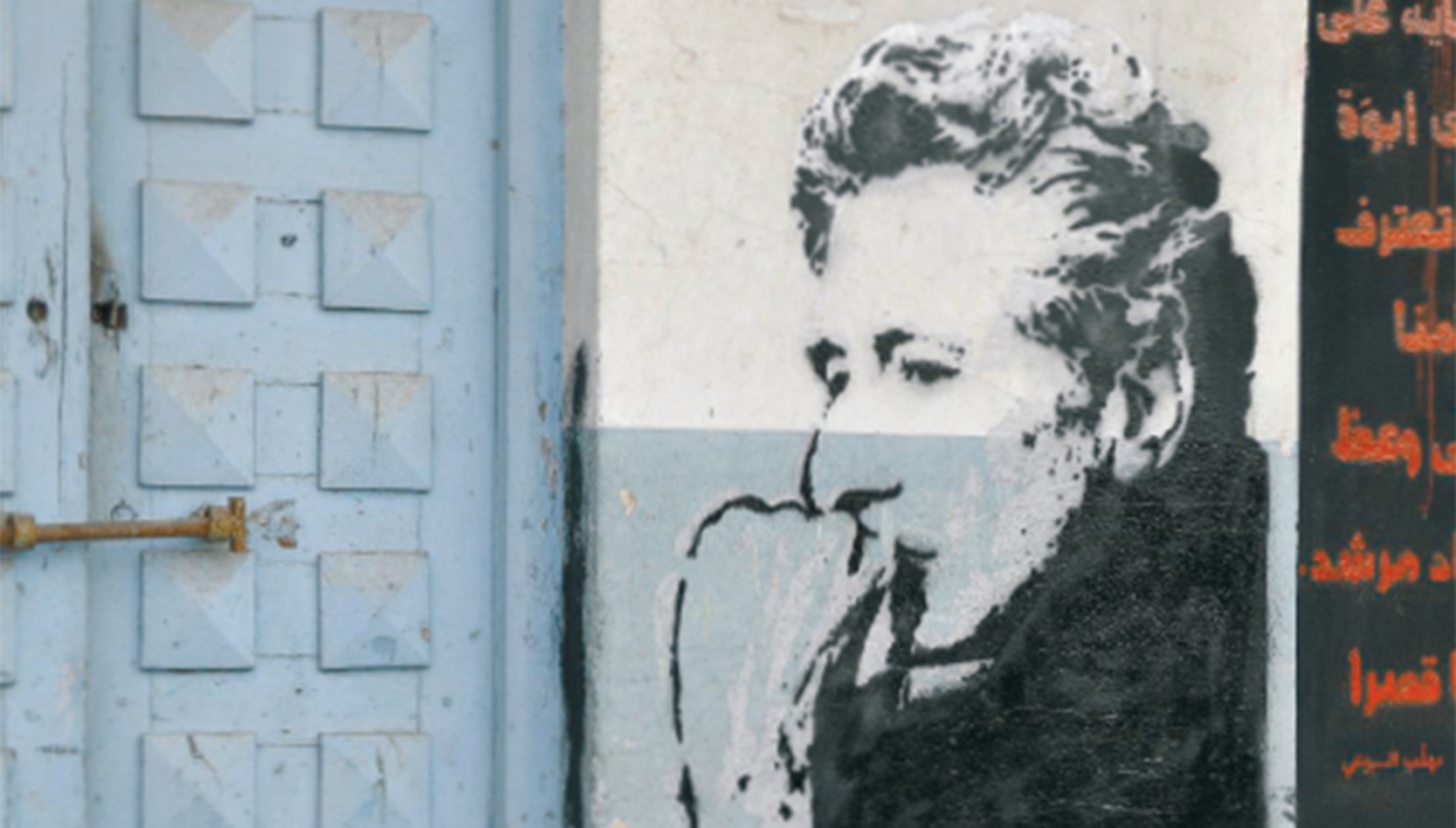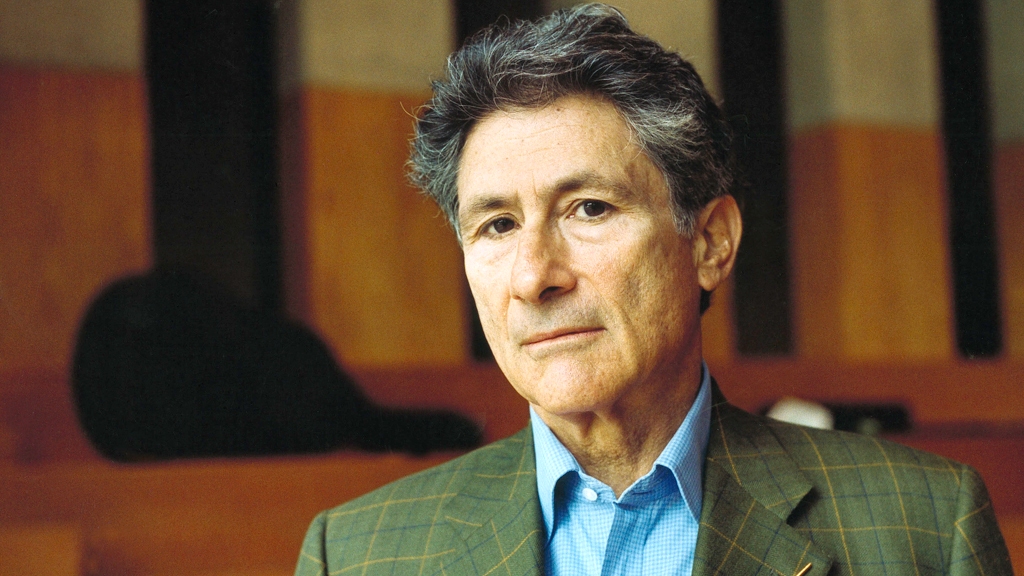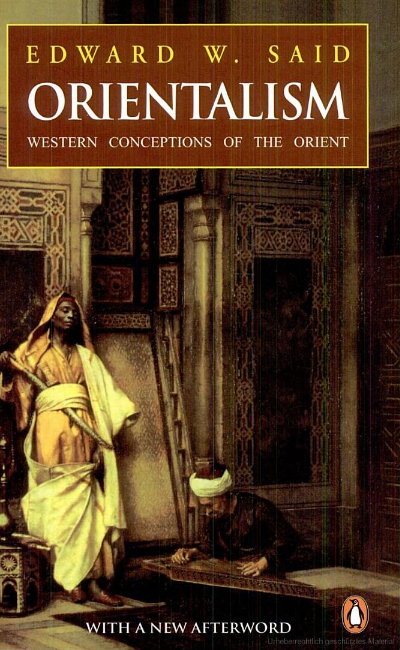Recalling Edward Said's Thought Today

Upon his death in New York on September 25, 2003, Edward W. Said was praised as an influential theorist and a public intellectual. During his lifetime, he produced a body of work – from Orientalism (1978) to On Late Style (posthumously, 2006) – that has retained its resonance until today, in a variety of fields and areas worldwide.
Indeed, tributes to the late Said, conferences and symposia held by educational and cultural institutions to discuss and explore his work, are all a sign of his immense, continuing significance. His ideas have effectively caused paradigm shifts in the humanities and the social sciences. However, his ideas have also trespassed the boundaries of academic discussions.
During the political revolts and upheavals in several Arab countries, revolutionaries turned his concepts into their slogans, and his words have emerged as graffiti writings on the walls of Tunisian streets-in-revolt. In so doing, revolutionaries not only thwarted a regime but also the possibility of Said's thought being treated as a "status quo", as a frozen understanding and as institutionalised interpretations, through which he became associated with a specific, fixed set of concepts, as enacted by the authority of academia and certain intellectual discussions.
Going beyond dichotomies

One of the underlying endeavours which can be traced throughout Said's corpus of work, and which remains particularly relevant to today's concerns, be they political, social or economic, is going beyond the logic of binary, oppositional relations. Such relations unfortunately have come to dominate the understanding and analysis of social relations and interactions.
Its simplest order of an I/Us, (whoever this might be) against an Other, is what Said repeatedly problematised and criticised. Throughout this effort to go beyond dichotomies, Said investigated concepts such as knowledge, power, representation, place, time, and travel. Given that several of Said's ideas are already quite well-known, such as his critique of Orientalism, or his investigation of the relation between culture and imperialism, the following recalls some of the less celebrated, often more personal, of his treatments of the above concepts.
To start with, one may recall what Said writes in Out of Place (1999) about himself, being a Palestinian and an American, as well as his being in two languages – Arabic and English – both acting as his mother tongue and both informing his own language in such a way that he was never able to grasp, or to separate. This type of being can be found more and more nowadays, as the West/North has large non-Western immigrant communities in its midst for the first time in history. Under these circumstances, as Said notes, definitions of cultures and societies have become highly volatile, extremely contentious matters.
Social consciousness over national consciousness
These definitions should be modified by knowledges of what Said names "counter-cultures": an ensemble of practices associated with various kinds of outsiders, including not only immigrants, but also the poor, artistic bohemians, workers, and rebels. It is also important to note here that Said, via Frantz Fanon, has effectively argued for a social consciousness in place of a national consciousness, which, according to him, is the reactive, atavistic assertion of a separate colonial or native identity. This urge to seek social consciousness over national consciousness – evident in his call for a one-state solution to the question of Palestine/Israel – and a modified definition of universalism, dissociating it from imperialism.
Otherwise, as repercussions of exclusion, there will result a split in the self, especially amongst members of immigrant communities in the North/West, but also in the South/East. In another instance in Out of Place, Said discloses concealing his command of Arabic as a pupil at the Cairo School for American Children. Eventually, he ends up not feeling fully at home in the Arabic language, despite its being his mother tongue.
Fugitive moments of freedom
This process also points to the centrality of concepts such as place, time, and travel. Moreover, for him, an uncompromised mode of thinking, especially when political, keeps one itinerant – a traveller. Travellers suspend the claim of customary routine in order to experience new rhythms and rituals. The traveller – unlike the Sultan who must guard one place and defend its frontiers – traverses territory and thus abandons fixed positions all the time. Hence, according to Said, deviating from already known and assigned paths is an act of liberation. It results in "fugitive moments of freedom" (Out of Place, p. 24).

At the same time, spaces have a multi-layered nature resulting from being situated out of a place or inside it, and not having a right to it or to its opposite, which points to Said's experience in relation to Palestine: "the unreconciled duality I feel about the place […] exemplified in so many distorted lives, including mine […] its status as an admirable country for them (but of course not for us)" (Out of Place, p. 142).
On this occasion, Said goes on to describe his family's, especially his father's, reaction to the loss of Palestine, a place the family would lose the possibility to return to after its occupation in 1948 and its re-designation as the state of Israel. Said's father, with the fall of Palestine, seems to have resorted to playing cards. Recalling sitting beside his father, a sort of punishment for misbehaving, Said identifies his father's card playing as a dispiriting blankness; an act signifying minimal emotional investment; a way to subliminate anxieties; an escape from a confrontation with reality, all requiring the least words: Silence.
Said thus concluded that all of this signifies nothing but mental and moral subordination, increasing the sense of another's authority over oneself. As he watched his father play cards, Said dissociated himself from the situation by imagining. The imagination, for him, works as a release from the authority of others in reality.
Said's spirit of resistance
So true power structures exist with great destructive effects, several of which Said himself has well exposed. Yet he also sees opportunities and possibilities to counter and modify them. Such opportunities can be traced in Said's case even in the least seeming places, behaviours, or emotions.
Fragility, pain, fear, and loneliness are all recurring feelings in his early life, but also later, when physical, namely his illness, and sometimes, emotional weakness characterised certain periods of his being. Facing critique through disembodiment, lagging behind, loitering, fidgeting, or biting nails, all surface in his life as means of resistance against the powerful, be it his father or educational institutions he attended.
The very techniques associated with weakness, such as "failing" and "misbehaving", up to "stone throwing" and "playing music", could indeed help foster what Said describes on a different occasion as a spirit not of conformity but of resistance; of individual agency rather than of collective determinism, precisely in situations of excessive authority and domination, where one lacks the physical power to fight back.
To Said, forcing one to accept that beyond what is being presented as an abyss, about which we can do nothing, is an apparatus for putting the potentially critical mind to sleep. However, to risk everything in order to engage in finding a way, building a bridge, imaginatively and critically, is what would put a halt to passivity, to the sense of defeat, and to hopelessness.
Adania Shibli
© Adania Shibli 2013
Text is based on Shibli's research while conceptualising and curating the symposium "A Journey of Ideas Across: In Dialogue with Edward Said," to be held in Berlin, at the House of World Cultures, October 31 to November 2, 2013,
Adania Shibli was born in Palestine in 1974, she obtained her doctorate at the University of East London in Media and Cultural Studies. She received the Qattan Young Writer's Award for her two novels "Masaas" (2002) and "Kulluna ba'eed bethat al miqdar 'an al hub" (2004). Her play "The Error" was presented in England and the USA. She teaches at the University of Nottingham and is currently a Fellow at the Social Science Research Centre of Berlin.
Qantara.de editor: Lewis Gropp
